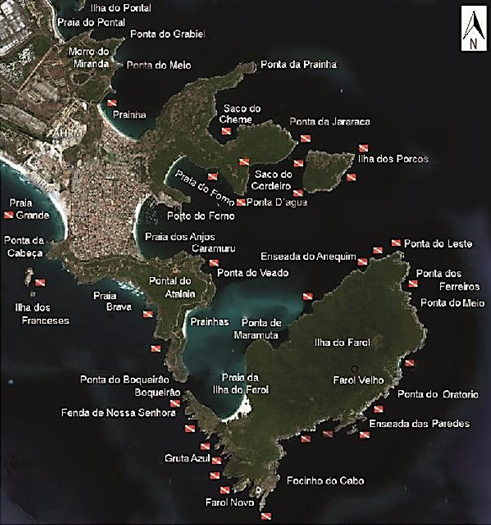 Recreational diving in a multiple use marine protected area: effects on benthic organisms and video-briefing as an educational tool Recreational diving in a multiple use marine protected area: effects on benthic organisms and video-briefing as an educational tool
to mitigate impacts
FAPERJ, Rio de Janeiro State Research Foundation (2014-2015)
Reef environments are popular among recreational divers, however the effects and impacts of this activity are poorly known, especially in
the South Atlantic. This lack of data impedes the effective management of diving, especially in marine protected areas. Worldwide
pre-dive ecological briefing has been used as the main strategies to mitigate impacts on benthic organisms, especially fragile
branching corals. In this project, we investigated the effects of a novel method in scuba diver behaviour: the use educational
video-briefings and its potential to reduce diver-coral interactions. Divers impact on benthic organisms will experimentally quantified and
coral/invertebrate damage index will be used for screen sites to obtain a perspective on the extent and severity of physical damage. We
aimed to develop strategies to reduce impacts of recreational diving in Arraial do Cabo Marine Extractive Reserve - ACMER, a multiple
use marine protected area at Rio de Janeiro state, Southeastern Brazil. ACMER sustains a rich coral and fish fauna, and represents one
of the main diving sites in Brazil.

Dive sites of Arraial do Cabo Marine Extractive Reserve.

Recreational scuba diver and unintentional contacts with corals and sponges. The video-briefing will be used to reduce rates of these
interactions which can cause impacts of marine biota.

|









